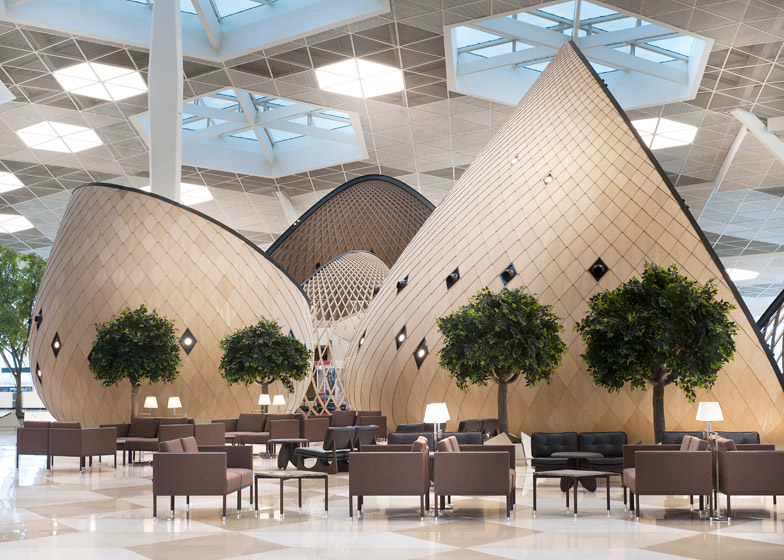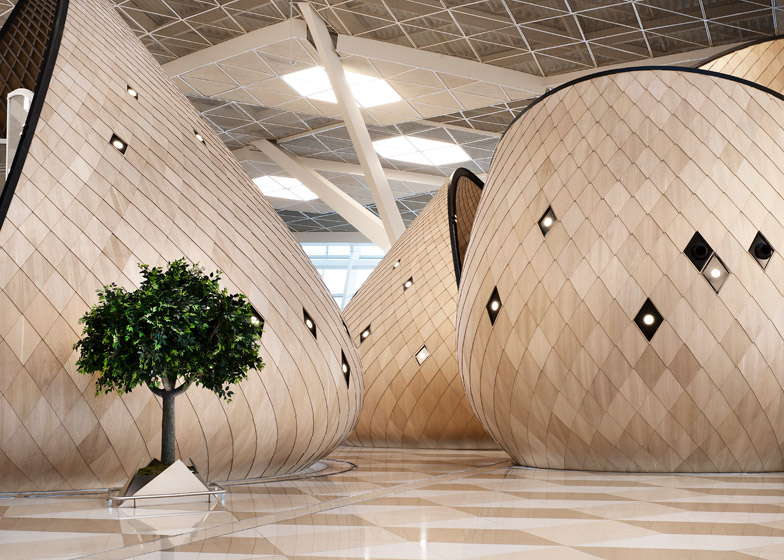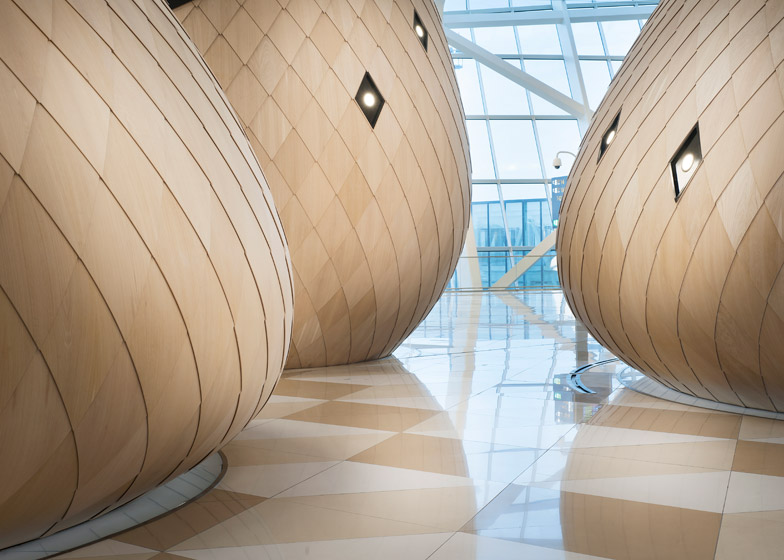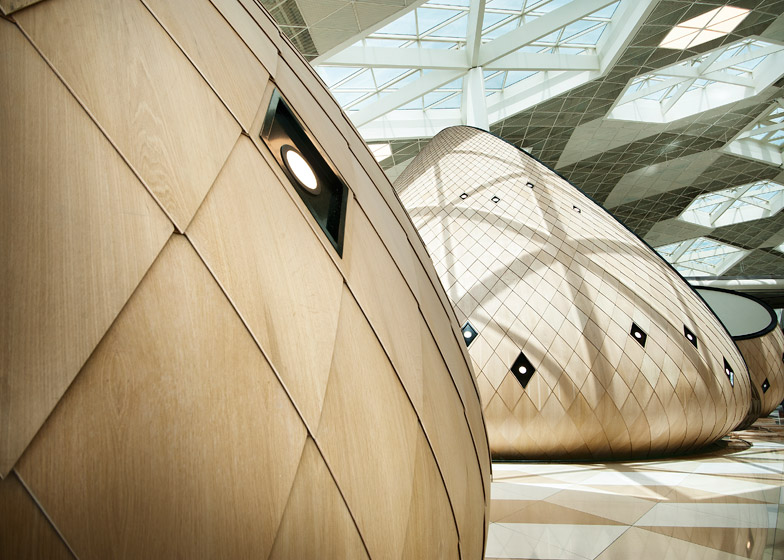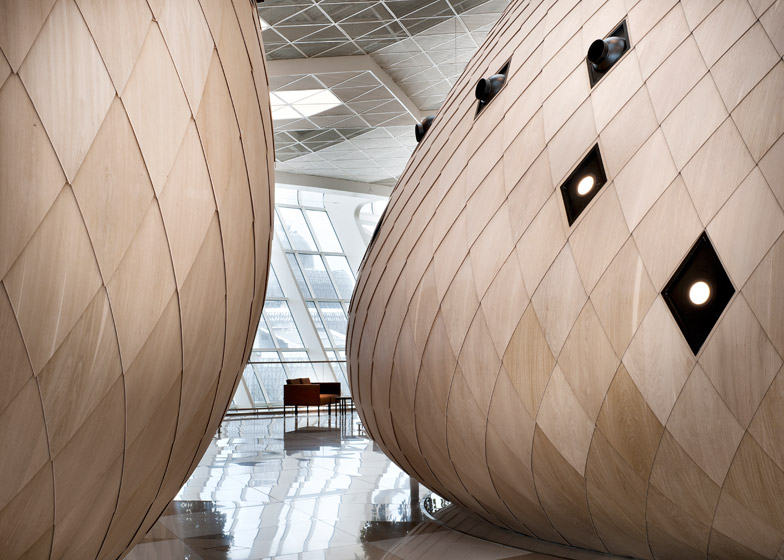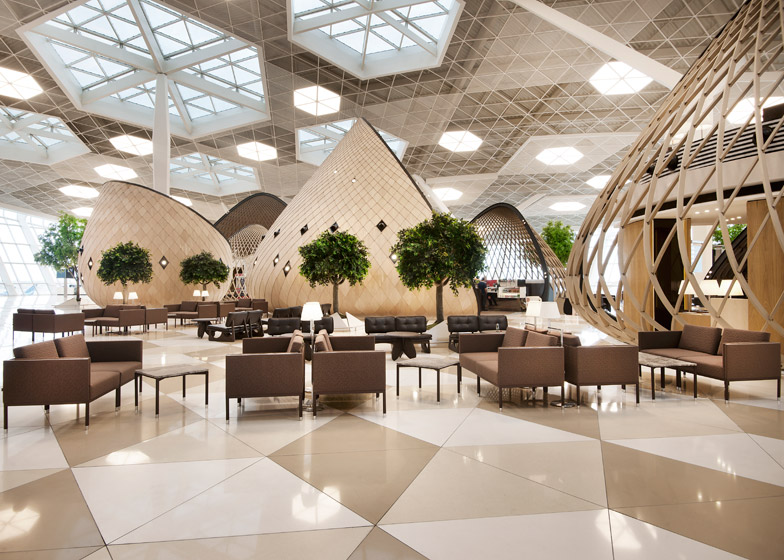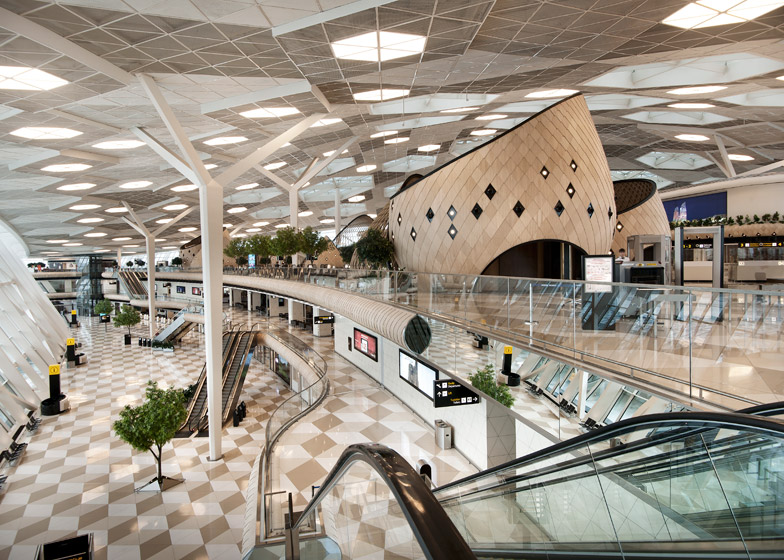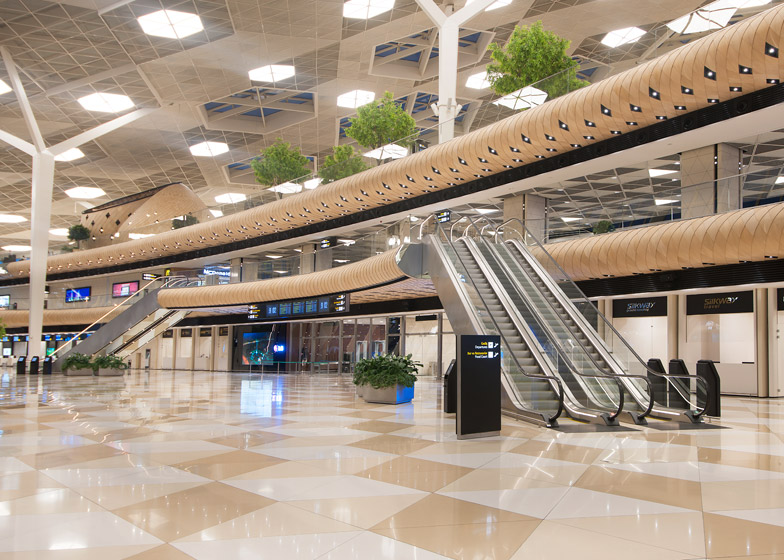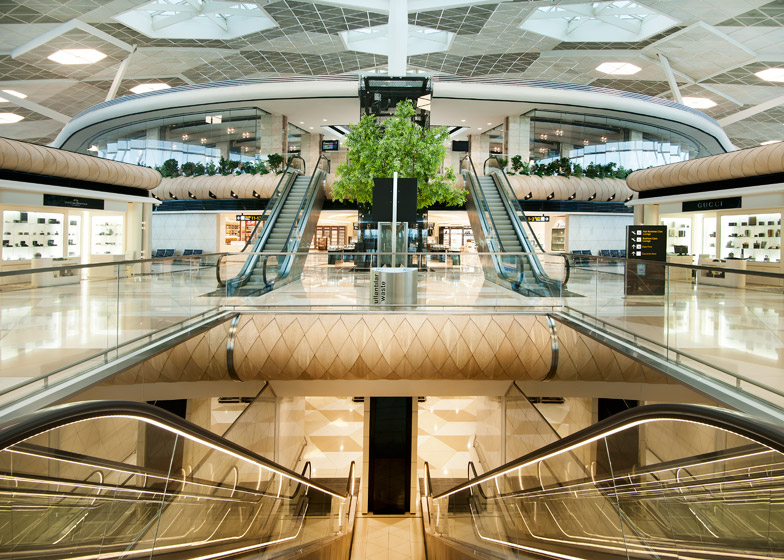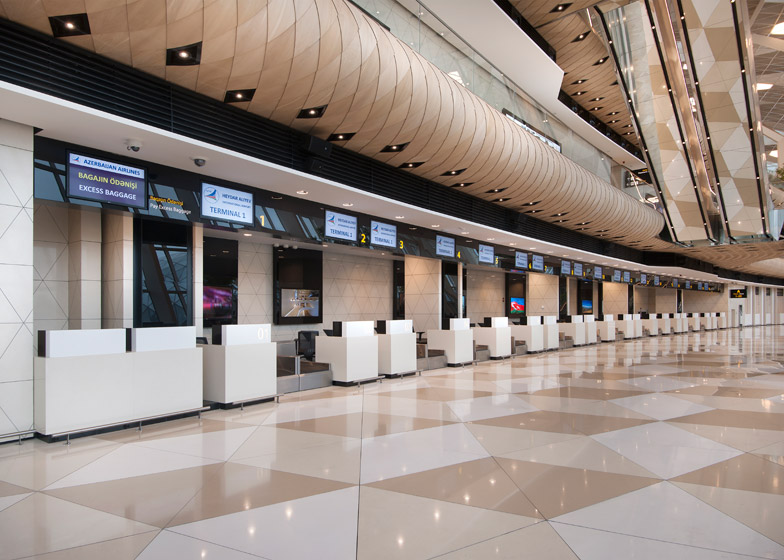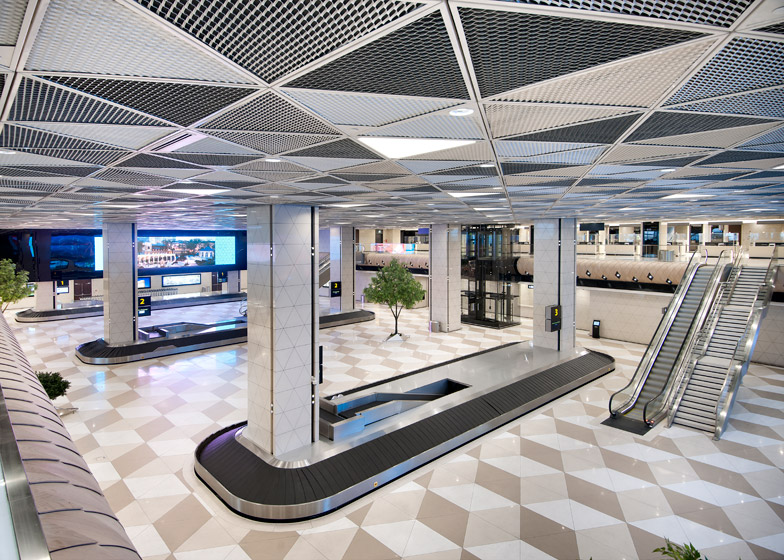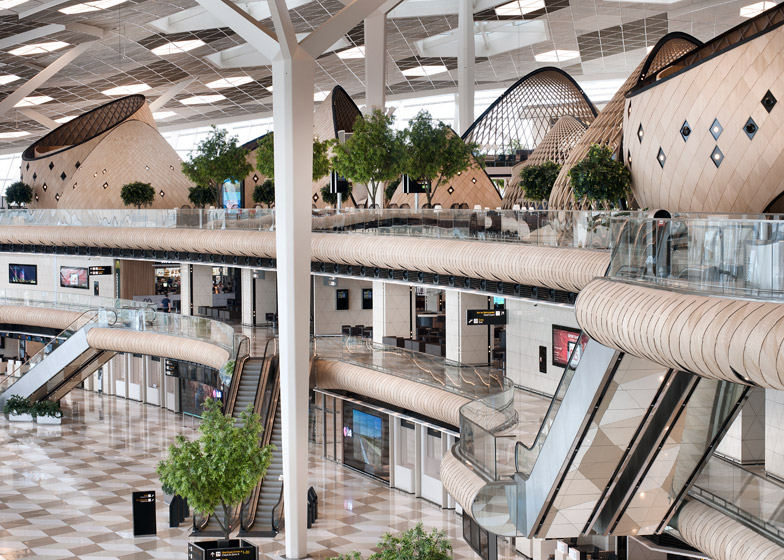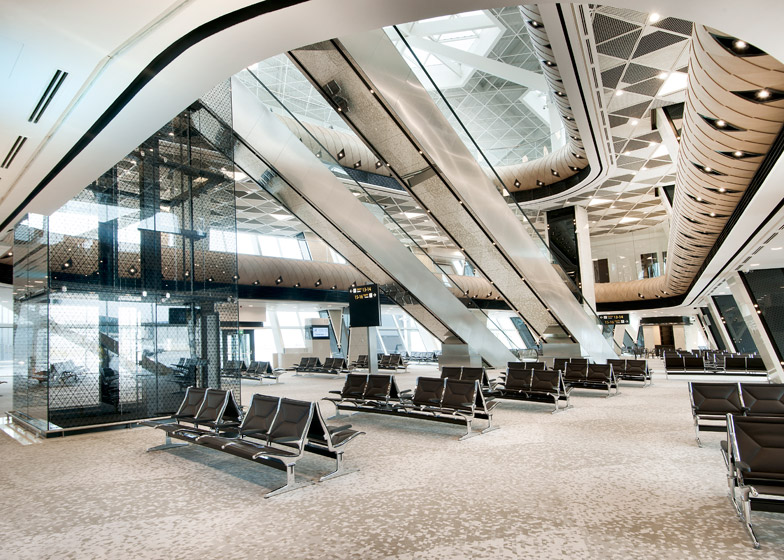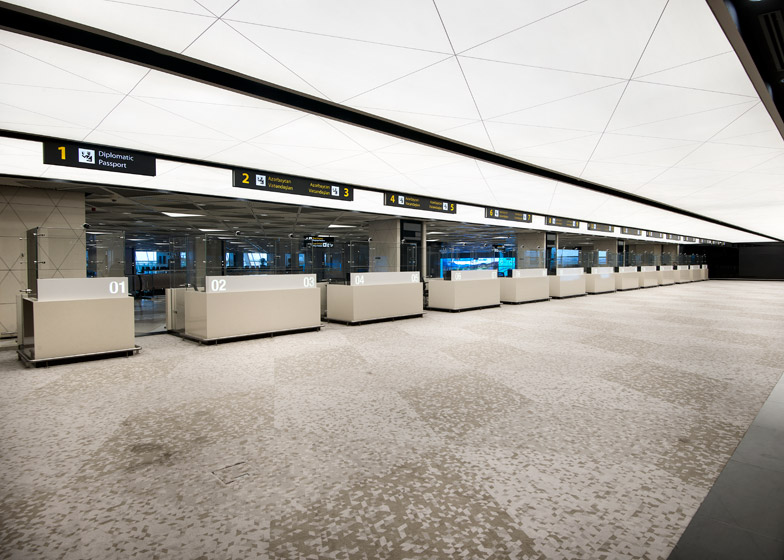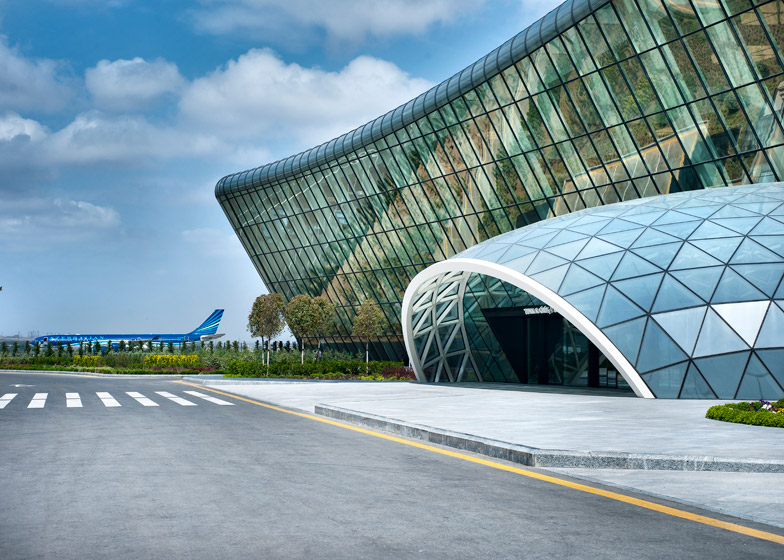Turkish architecture studio Autoban has designed giant wooden "cocoons" for the interior of the new international terminal at Baku airport in Azerbaijan (+ slideshow).
Autoban's design spans all of the passenger areas inside the triangular terminal building by engineering firm Arup, which is split over four levels.
Concave external glass walls lean out from their bases, curving around the corners to wrap the entire structure.
Six million passengers a year are expected to enter through the glass bubbles that lead into the full-height check-in area, which is scattered with trees and structural columns.
"The main idea was to make it different from other airports," Autoban cofounder Seyhan Ozdemir told Dezeen. "While traveling has become a huge part of our lives, we believe as designers it's our goal to make it as enjoyable as possible for the public by changing the fundamentals of such transportation hubs."
Wooden pods on the top level – described as "cocoons" by the designers – house cafes, bars, shopping kiosks and other amenities including a children's play area and luggage storage space.
"The use of the cocoons is flexible and it is expected they will change over time as the airport terminal evolves," Ozdemir said.
Each is clad in diamond-shaped solid ayous wood shingles covered with oak veneer, creating shells around the different-sized forms.
"We adopted the architectural structure of the terminal and played with micro-architecture within the cavernous space to bring it down to a more human scale, so that it felt like a nest," said Ozdemir.
Similar wooden patterns cover the curved edges of floor plates around atrium spaces and escalators.
Hexagonal skylights puncture the domed roof, interspersed with lights in similar shapes integrated into a frame of triangular sections that cover the ceiling.
Triangular grills also pattern the ceiling of baggage reclaim, mirrored by the layout of floor tiles.
Autoban also created four "Salam Lounges" for business-class passengers with a fast-track security option.
Baku's airport was renamed in 2004 after former Azerbaijani president Heydar Aliyev, whose name has also been given to the Zaha Hadid-designed cultural centre in the city.
Hadid's building was recently awarded Design of the Year 2014 by London's Design Museum, causing widespread controversy.
Photography is by Kerem Sanliman.
Here is the project description sent by the architects:
Autoban-designed Heydar Aliyev International Airport in Azerbaijan
The new terminal at Azerbaijan's Heydar Aliyev International Airport will soon open in the country's capital of Baku. The landmark terminal features interior architecture and experiential design by the globally acclaimed, Istanbul-based Autoban studio.
Bearing all the hallmarks of the multidisciplinary studio's experimental, genre-defying approach, the contemporary interiors overturn airport conventions of cavernous space and impersonal experience.
Taking inspiration from Azerbaijani hospitality, Autoban's Red Dot award-winning design spans the entirety of the terminal's passenger spaces, and includes striking custom-made wooden "cocoons" that create a sense of welcome and discovery, and opportunities to either meet or retreat.
This use of narrative and unconventional forms is typical of Autoban's idiosyncratic approach. For more than a decade, the studio has developed a reputation for its imaginative, human approach to design, creating spaces that are firmly rooted in cultural, social and geographic narratives, yet offer unexpected and thought- provoking experiences to their inhabitants and visitors.
At Heydar Aliyev, their bespoke furnishings and lighting schemes upend airport typologies, opting for tactile natural materials such as wood, stone and textiles, gently and warmly lit. The cocoons – which vary in size and house an array of cafes, kiosks and other amenities – exist at the convergence of architecture and art, creating an inviting, intriguing landscape within the huge transportation hub that challenges expectations of the airport environment.
Autoban have also conceived, designed and furnished four handsomely appointed "Salam Lounges" exclusively for business class use, extending the best of their hospitality expertise to these premium passengers.
Now spanning 65,000 square metres, more than six million passengers a year are expected to pass through the airport, enjoying Autoban's thoughtful, highly functional and memorable gateway to the country and the wider Caucasus region.

